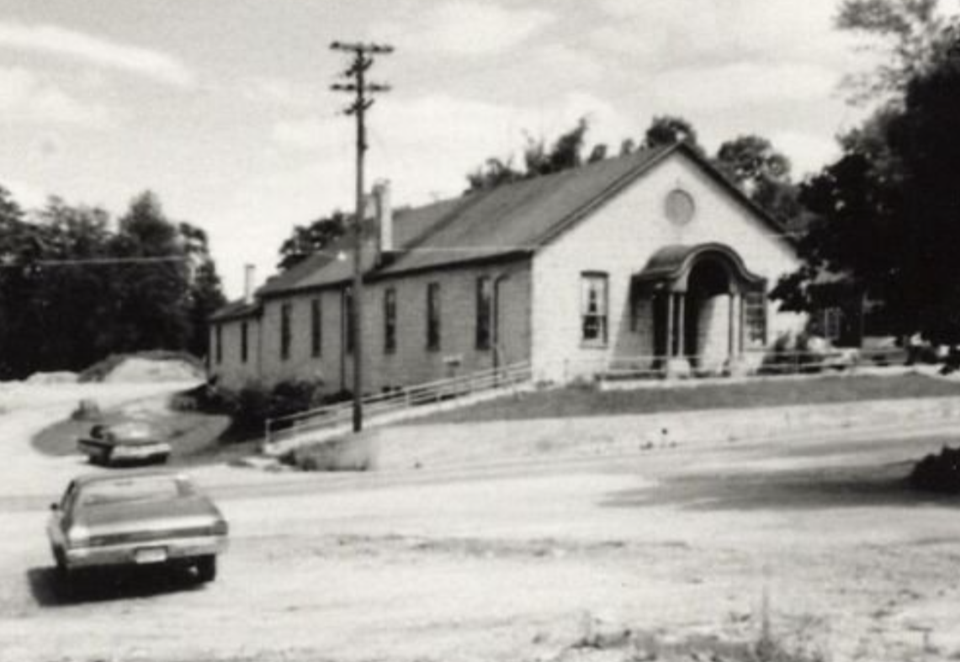He was an entrepreneur, a jack-of-all-trades, a promoter (especially of himself), and a man whose vocal skills earned him renown. “Professor” David S. Ritchie of Elora was undoubtedly one of the community’s most colourful characters.
Ritchie was born in Cornhill, Aberdeenshire, Scotland, in 1842. His family emigrated to Canada in 1846 and settled in Elora where his father found employment as a teamster and a watchman. David and his brother John were among the first children to attend the Elora Public School.
Young Ritchie apprenticed with his uncle James Gerrie to learn the trade of shoemaking, one of the many occupations he would have in his lifetime. In 1866 he took a military turn and joined the Elora Volunteer Rifle Company so he could go and fight the invading Fenians. Ritchie never saw any battlefield
action, but as one of the sergeants in the Elora Company he was able to put his stentorian voice to good use.
After the Fenian scare faded, Ritchie spent the next few years wandering from one place to another. He lived in Newmarket for a while, then went to Hamilton where he worked as a railway man.
His next stop was Toronto where he trained to be a police constable. He didn’t move back to Elora until the summer of 1873.
As he settled back into his old hometown, Ritchie went to work selling portraits and landscape photographs. He was successful enough at it that he became the exclusive agent for Thomas Connon, a leading Elora citizen who had gained renown as a photographer and inventor.
In the spring of 1874, Ritchie was appointed Elora’s town crier.
In an era before mass communication and when there was still a high rate of illiteracy, the town crier’s job was to publicly make important announcements. He drew a crowd by ringing a bell and shouting, “Oyez!” – a word that meant “Hear ye” which dated back to medieval England. Ritchie had the vocal chords for the job.
Ritchie was also made Elora’s official bill-poster, which meant that only he could legally post bills (notices) in public places. The first one he posted was a promotion for himself.
“Prof. Ritchie B.P. Begs to announce to the citizens of Elora and neighbourhood that he has been appointed by the Municipal Council of Elora to the position of BILL POSTER AND TOWN CRIER and that he will be prepared at all times to execute any orders entrusted to him at reasonable rates and with
promptitude and dispatch. Orders may be left at any of the printing offices and at Mr. Robert Mitchell’s Harness Shop and will be at once attended to. Prof. Ritchie is sole agent for Connon’s Celebrated Stereographic views of Elora and Grand River scenery which he will continue to supply at most moderate
prices. God save the Queen.”
Ritchie wasn’t Elora’s first town crier, but he handled the job with his own brand of flair. He also earned fame as “the first uniformed bill poster in America.”
In 1881, Ritchie married Margaret Moore. The couple would have two children; a daughter who died in infancy and a son who died while still just a young man.
The following year, Ritchie became the manager and caretaker of Elora’s Armoury Hall. This was an important position because the Armoury Hall was the community’s entertainment centre. Professor Ritchie had the responsibility of booking the actors, singers, musicians, comedians, lecturers and other
touring show people local residents would pay to see.
The show could be anything from a comedy revue full of slapstick routines to a Shakespearean tragedy. Minstrel shows, which had their origin in the American South, were a low-brow form of entertainment that would not be acceptable today but were popular in Ritchie’s time.
At the other end of the spectrum were symphony orchestra concerts. Ritchie booked them all into the Armoury Hall.
A ticket to a minstrel show cost only 10 cents, while admission to the more sophisticated classical music concert would set a patron back as much as 50 cents.
Sometimes Ritchie himself provided the entertainment on stage. He was a raconteur who would\ be called a stand-up comedian today. He was also a lecturer who especially liked to talk to audiences on the topics of women, love and courtship.
His lecture titled “Elucidations and Delineations of Female Character” sold out at the Armoury Hall and was so popular he did a tour of nearby communities with it. It received rave reviews in the local press.
Ritchie was the man who, in 1906, first brought motion pictures to Elora.
He also owned a flat-bottomed boat which he used in the summer to give tours of the Grand River to visitors in Elora. In addition to all of his other enterprises, Ritchie became a Wellington county auctioneer, finding yet another way to put his exceptional voice to advantage.
Professor Ritchie left Elora for a few years. He was the town crier in Owen Sound for a while. Then he joined an American touring company called The Little World. However, he eventually returned to Elora and his positions as town crier and manager of the Armoury Hall.
The professor was a local celebrity and the Elora Lightning Express reported on his activities, often with a humorous touch. “Ritchie dons new and stylish costume” the newspaper’s editor said of his town crier’s uniform.
On an occasion when he fell through the ice on the river and nearly drowned, the paper covered every detail of the story.
In his final months Ritchie suffered from inflammatory rheumatism. He died on May 8, 1909, just months after the death of his son David.



